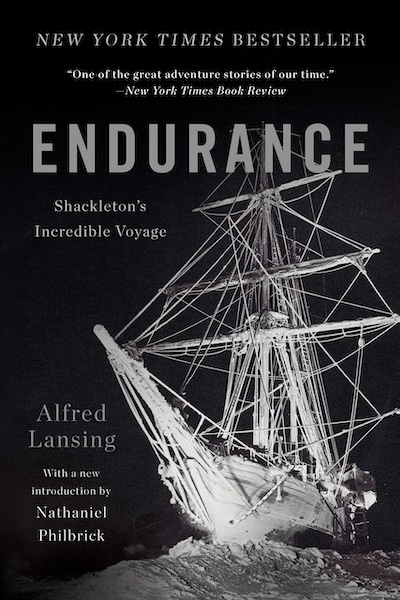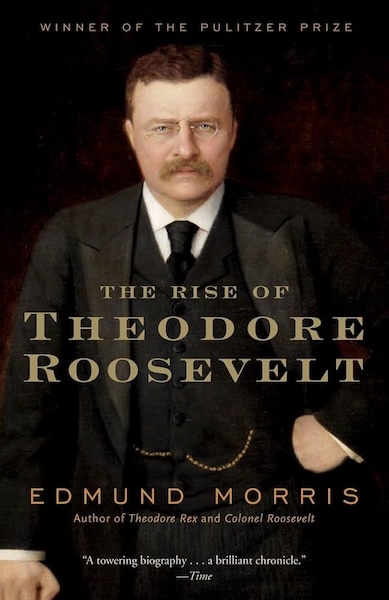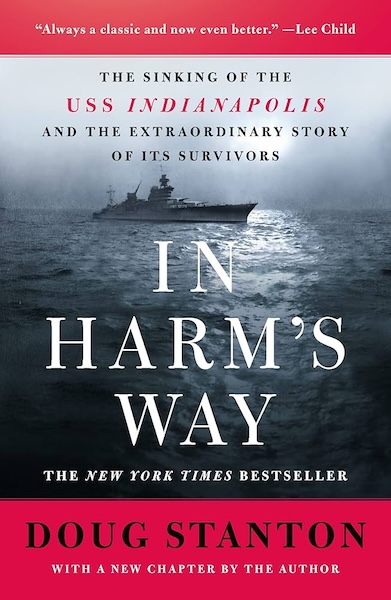I remember when I was a kid, and my dad was in his forties, Christmas shopping for him was tough.
By this point in his life, the guy had pretty much everything he wanted or needed.
Socket set? Had it.
Ties? He had plenty of those and didn’t want any more.
Briefcase? Acquired.
Cologne? He had his go-to drugstore cologne and bought more on an as-needed basis.
Even though he was pretty set, the one thing he still enjoyed finding under the Christmas tree was a new book.
My 12-year-old brain couldn’t comprehend it.
The one time a year you could ask for anything and all you wanted was a book?
Well, now that I’m in my forties myself, I completely understand my dad.
I don’t want or need much these days. But I always welcome a new book.
I’m sure a lot of guys can relate.
The holidays we need now aren’t those that burden us with more “stuff.” But more enticements to read? We could all use that.
If you’ve got a tough-to-shop for man in your life who’s reached the stage of dad development that my dad and I are in, below I highlight nine highly interesting, can’t-miss books to gift him (or get yourself!). While any book makes for a great gift, history books have broad appeal and tend to be a favorite genre of dads everywhere.
Merry Christmas and happy reading!
There are few books I’ve thought about more often since reading them than Empire of the Summer Moon. This gripping history charts the rise and fall of the Comanche nation through the story of its last great chief, Quanah Parker. The son of a Comanche warrior and a kidnapped white woman named Cynthia Ann Parker, Quanah’s life serves as a lens into the larger clash between Native Americans and white settlers across the Texas frontier.
S.C. Gwynne doesn’t romanticize either side — he details both the Comanches’ tactical brilliance and brutal raiding culture, and the settlers’ resilience alongside their ruthless expansion. The book is particularly strong on the practical details of frontier warfare, from the Comanches’ mastery of horseback archery to the game-changing impact of the Colt revolver.
While some histories of the American West can feel either too apologetic or too triumphalist, Gwynne strikes a clear-eyed balance that makes the tragedy of this cultural collision all the more powerful. This is a great book to read in conjunction with Lonesome Dove, the greatest dad novel of all time.

Old Blood and Guts — General George S. Patton — was a walking contradiction. He was a warrior poet, a mystic tactician, and a sensitive soul with brass bravado. Through newly unearthed letters and diaries, Alex Kershaw captures Patton during his months of exile in England after his infamous slapping incident, showing us a man who consulted medieval military texts, composed poetry about reincarnation, and fervently believed he was destined for battlefield glory. On the eve of his campaign to relieve soldiers at the Battle of the Bulge, Patton had a prayer composed that asked for good weather. Some saw it as a PR stunt, but Kershaw shows that it was a genuine expression of Patton’s deep, if unorthodox, faith. While other Patton books focus on his campaigns, this intimate portrait lets us see the man behind the medals — a leader who was incredibly profane, but deeply pious.

I read this book over seventeen years ago as a law student, and it had a big impact on the ethos and mission of the Art of Manliness. It chronicles Theodore Roosevelt’s life from his asthmatic childhood through his transformation into a specimen of “strenuous living,” covering his years as a Harvard boxer, Dakota rancher, NYC police commissioner, and Rough Rider.
What sets this TR biography apart from others is Morris’ eye for detail and his skill at making you feel the raw energy of the man — you can practically hear Teddy’s high-pitched voice and see his big gleaming teeth as he bounds through the narrative.
While some biographers get caught up in hero worship, Morris gives us the full picture, warts and all: TR’s occasional pomposity, his blind spots, his sometimes manic drive. But it’s impossible not to be swept up in the sheer force of Roosevelt’s personality and his infectious enthusiasm for life. No wonder The Rise of Theodore Roosevelt won the Pulitzer.
The rest of Morris’ trilogy on TR is also worth reading, but if you’re going to get just one volume, make it this one.

After carrying the components for the Hiroshima-bound atomic bomb, the USS Indianapolis was torpedoed and sunk by a Japanese submarine, setting off an epic survival struggle for the 1,000 men who went overboard, only 300 of which would survive four days of exposure, dehydration, and nightmarish shark attacks. In Harm’s Way evocatively details those personal accounts of survival while describing the historical context for the sinking of the Indianapolis, why it took four agonizing days for its survivors to be rescued, and the later controversial court-martialing of the ship’s captain, Charles B. McVay III. The greatest test of historical nonfiction is whether it can maintain a sense of tension and suspense despite the reader already knowing the outcome, and In Harm’s Way passes with flying colors. Gripping, frightening, and poignant, it’s hard to put down.

While plenty of books cover Grant’s military achievements, this 2017 biography pierces through to the enigmatic man himself. What sets it apart is Ron Chernow’s skill at revealing Grant’s complexity — the hesitant shopkeeper who became a masterful general, the supposed drunk who showed extraordinary self-discipline in wartime, the quiet soul whose determination reshaped a nation. The section on his presidency overturns decades of lazy historical consensus, showing how Grant’s pro-civil rights stance and willingness to deploy federal power against the Klan made him a more consequential leader than previously acknowledged. Chernow’s attention to detail and fluid prose bring fresh life to a figure we thought we knew.

The meme that men are always thinking about the Roman Empire may have gotten overplayed, but the sentiment still rings true. If you’re looking for a window into that fascinating period of history as offered through the lives of the men who ruled it, check out Ten Caesars. Barry Strauss’ book offers readable profiles on the lives of ten of the consequential emperors who defined and shaped the Roman Empire, from Augustus to Constantine. What makes this book particularly engaging is how Strauss draws thoughtful parallels to modern leadership challenges. Rather than getting bogged down in academic minutiae, he focuses on the human drama and practical lessons of imperial power. It’s fascinating to see how each emperor navigated the delicate balance between military might, political savvy, and public image. While some popular histories of Rome can feel either too dry or too sensationalized, Strauss hits the sweet spot between scholarly rigor and narrative flair.
This post was originally published on here







